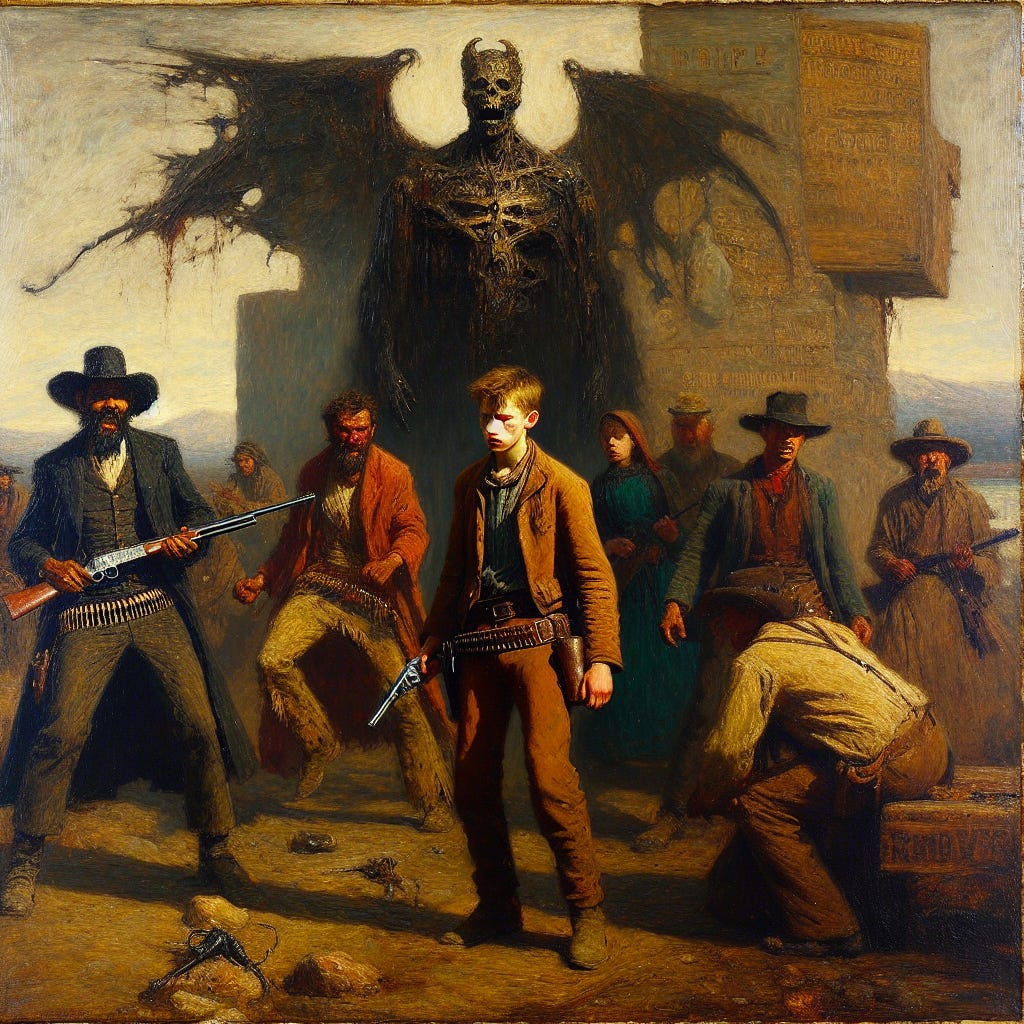It is visceral, the smell of the characters you come to hate. As the sun relentlessly rises some shred of hope is torn free, you wave a white flag with each turn of the page. Perhaps the rolling hills and sculpted scenery momentarily distract you from despair—but then McCarthy reminds you: this book was never meant to entertain.
In Blood Meridian, McCarthy’s sentences scatter like desert sand before charging forward like runaway horses. With no punctuation marks or inner monologues to anchor you, the reader is left breathless, dragged behind.
The opening feels self-conscious and forced, its violence too blunt and shocking to foster connection or care. Without plot summaries or character introductions, it struggled to make me care about what was happening.
It just did not really work… at first.
This book defies genre: it is neither body horror nor fantasy nor sci-fi. It rejects abstraction and entertainment in favor of an unflinching exploration of humanity’s darkest truths.
This violence is disturbingly human—neither gratuitous nor sensationalized. This book is a fable—a fiction cloaked in nonfiction, where themes marry facts. It is a horror novel afflicted with an unnamed illness, a fairytale teetering on the edge of magical realism.
This story is a riddle, where themes at the heart of humanity are interrupted by violent lightning. After a flash, the reader is struck into darkness, left alone with a character they have grown to flinch at—the name “The Judge.”
Judge Holden is a photograph burned into memory—a grotesque clarity amid blurry, undeveloped characters. Time and again, he’s caught red-handed in unspeakable atrocities, yet we still ask: Who is he? For all his vividness on paper, he remains little more than a shadow.
Somehow, even knowing the exact shade of his skin and the number of hairs on his head, he still ceases to feel human. The reader is parched in doubt: Did these atrocities truly happen? Is 'The Judge' even human? Yet in this doubt lies fleeting relief—for each breath he takes makes our shared humanity unbearable.
Judge Holden embodies the vile nature of violence better than any character that any author has ever introduced. Yet his presence is not isolated—it reverberates through McCarthy’s novel.
Where language traps you in this hellscape unmatched by most accounts of actual events, instead, it is replaced with a cyclic kind of repetition that leaves the reader unknowingly jaded. The literary merit emerges not from its narrative but from its ability to leave readers claustrophobic in an oppressive cycle of hyperrealism, where violence becomes a reflection of humanity’s darkest truths. A redundancy that lulls a reader into a compliant trance, that this is art.
You march along like a sheep—an accomplice to McCarthy’s harrowing tale—but remind yourself: this is literary merit, isn’t it???
The only solace of having read Blood Meridian is the solidarity I feel upon meeting another reader. May we share some hope for change or repentance in the shadow of our eternal violent nature. This book forced me to confront questions about history and humanity that linger long after its final page. In our post-truth world, what do we have left but stories like these? In this genre, you cannot fall back on any fact-checking or academic discussion, you are stuck in this purely emotional place he has put you in which aches like a fever dream.
The ending of Blood Meridian was unsatisfying—not because it lacked resolution, but because it refused redemption. The seed of violence persists, it mirrored something primal within me—I deserved every page.
Tied to the American Southwest and scarred by history’s brutality, I feel compelled to confront the past—yet even with that burden, I cannot recommend this book.




